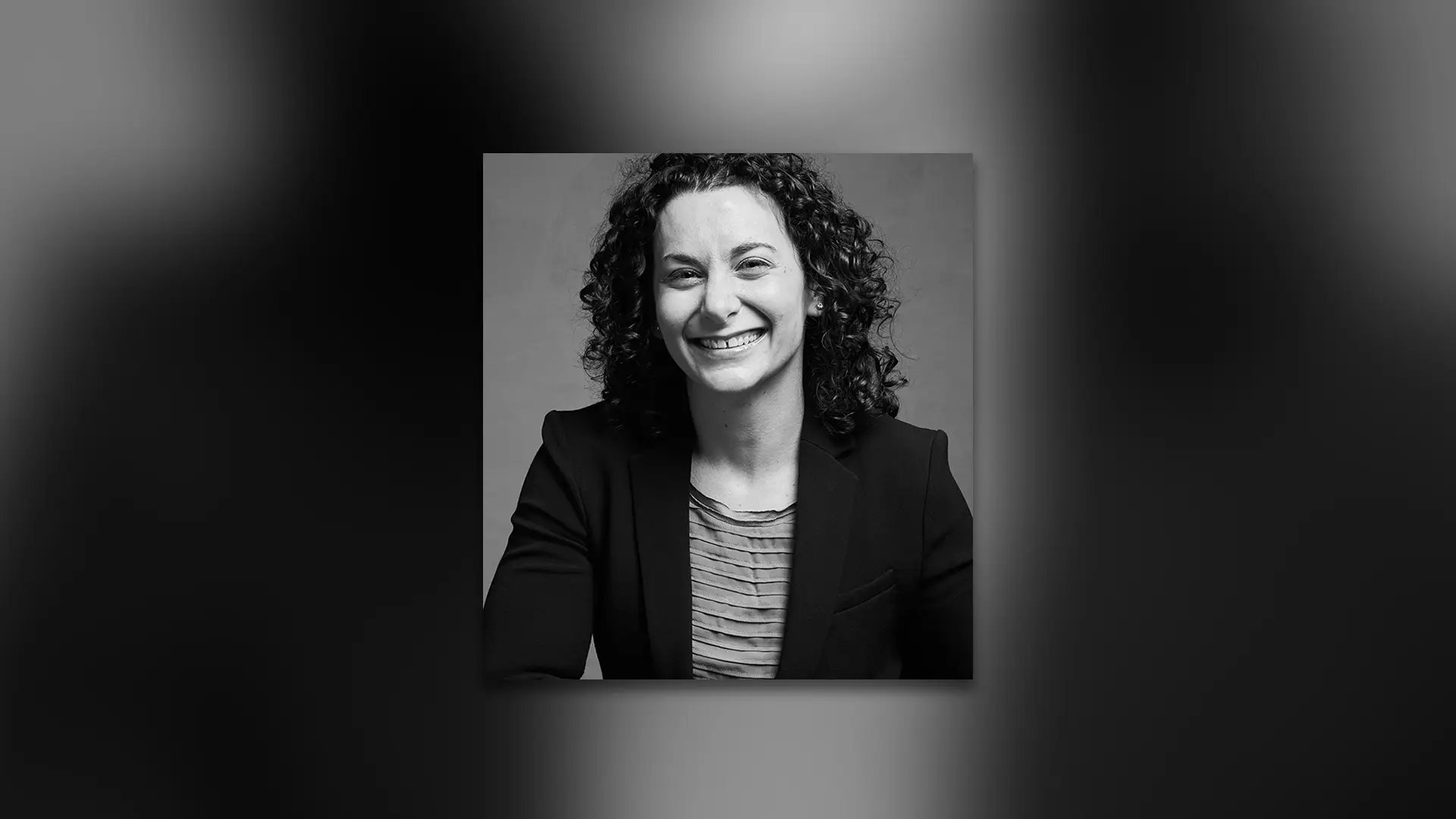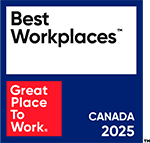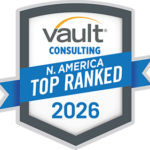
Article
An Interview with Sara Cappe: Commitment and Leadership Through Change
Hua Yu, Kelsey Deutschmann — October 30, 2025
Recently, we sat down with Sara and explored the journey of her career and the perspectives she has gained along the way. She spoke candidly about breaking barriers as a young woman in leadership, the power of data in shaping strategy, and her advice for the next generation of professionals seeking to grow as leaders. We’ve put together this article to share some of the highlights of our conversation with Sara.
Sara, you’ve described your career as an evolution rather than a leap. Instead of switching you stayed and grew with the organizations you’ve been part of. Can you share more of your journey with us?
Sara: As President of Harris Poll Canada, my 17-year journey through market research has been marked by lots of growth and change, but not in the traditional sense – I’ve stayed and built rather than constantly moved.
I began my career at Ipsos, learning the fundamentals of research and client management. From there, I moved to Vision Critical (now Alida), then to Maru, and eventually my journey with Harris Poll followed. One initial job interview has led to multiple roles along the way. The evolution took me from a senior research manager doing hands-on research and client management to leading the Harris Poll Canada team.
Each step gave me new skills and experience with new work cultures, but choosing to stay and grow with one organization has given me a front-row seat to watch how strategy unfolds in real time. It’s allowed me to build deep institutional knowledge, which became a real strategic advantage as I progressed in my career.
That path is not so common these days – how do you think this mindset can help young women starting their careers in strategy today?
Sara: There’s so much pressure today to change jobs every three to five years. It seems the message is always, “move fast, make bold moves, and keep climbing,” but I’ve had a completely different experience. There is power in growing with your organization as it shifts and evolves.
With commitment, you can build longstanding relationships with your coworkers, whether that’s your peers, your mentors, or people reporting to you. These relationships can be formative, play a key role in your progression, and build the allyship and camaraderie that make coming to work fun.
Sometimes, having the patience to let things run their course can benefit you in the end. While the recognition or promotion might not come immediately, over time that long term commitment can open doors you didn’t even know existed at the start. Don’t underestimate the value of showing up every day, staying curious, and building trust over the long haul.
When you think about your career so far, what’s the moment that makes you feel most proud?
Sara: If I think about my proudest career moment, it’s the official launch of the Harris Poll brand here in Canada. That felt like a full-circle moment because I went from a hands-on researcher early in my career to building a business unit and leading a passionate, committed team.
Harris Poll has always had a strong legacy at the intersection of culture, politics, and society. Bringing that legacy to the Canadian market was transformative. Beyond launching a brand, it was a chance to carve out a new space, earn clients’ trust, and show them how we connect the dots between their business challenges and the larger cultural and political trends shaping the world.
You’ve led through several major transitions, from Vision Critical to Maru, and later the integration with Harris Poll. How did those experiences influence the kind of leader you’ve become and what did they teach you about leading teams through change?
Sara: As a researcher, I was trained to go deep, analyze every detail and seek perfection. When I stepped into a leadership role, I realized this had to change, so I started to prioritize progress over perfection and really focus on empowering my team.
At the end of the day, leadership isn’t about doing everything yourself. For me, leadership is about hiring, coaching, and empowering people to shine in their own way. If you don’t trust your team, you might be working with the wrong team. I truly believe that each of my team members is stronger than me in different ways, and that’s exactly what makes us successful. I still enjoy jumping into reviewing a questionnaire or a deck when I get the chance, but that’s no longer my primary role. My responsibility now is to make sure they have everything they need to do their best work.
I care deeply about the people I work with, and I’ve always tried to be a steady figure through ups and downs. Through all the change, between shifts in ownership, leadership, and strategy, I’ve learned that people don’t just want direction during uncertainty, they want someone steady to lean on. My leadership style has become more transparent and empathetic as a result.
Early in your career at Ipsos, you worked on political polling in both Canada and the U.S., including the 2008 Obama campaign. What did that experience teach you about the power of data to shape strategy? And how is AI reshaping that landscape now?
Sara: Throughout my career, I’ve worked on high-stakes studies, shaping go-to-market strategies, launching new products, and helping brands pivot in real time. What I learned early on is that data isn’t just numbers in a spreadsheet, it becomes a narrative that helps clients make bold decisions with confidence. That lesson has stayed with me because data is only as powerful as the story behind it.
Now, as AI transforms our industry, I see it as a powerful accelerator. At Harris Poll, we’re building AI into our tools to design questionnaires more efficiently, exploring synthetic respondents, and using AI to code responses and process massive data sets in ways that used to take weeks. That speed matters because clients want insights faster.
What AI can’t do is interpret insights with empathy or connect them back to a client’s strategic priorities. That human layer of listening, asking better questions, and understanding nuance is what gives research its meaning. AI helps us move faster, but it can’t replace the need for strategic thinking – that’s still our job.
You’ve said you were at times the youngest and one of the only women in the room early in your career. How did you build your confidence as a leader in that environment, and what guidance would you offer to women finding their footing in similar rooms?
Sara: Yes, earlier in my career, when I first joined executive tables, I was often the only woman, usually the youngest person, and at times leading the smallest team in the room. It was hard not to let imposter syndrome creep in.
Initially, I listened. I spent time understanding what everyone brought to the table because they were all successful leaders with unique strengths. It took me a while to find my voice, but eventually I realized I was there for a reason: I often had a different perspective and thought about things in a different way.
I had to get comfortable with being uncomfortable and speaking up even when it felt awkward. Now I tell myself: we can do hard things. You don’t need to wait until you feel 100% ready. Sometimes 80/20, even 60/40, is enough. What matters is showing up and staying authentic.
Those uncomfortable situations are where you grow. It’s not fun, but you come out stronger. I honestly think if we don’t feel that nervousness, we’ve become complacent. Having that nervousness is a sign that you care.
For those early in their careers, what advice would you give on developing leadership skills and learning to think more strategically? Are there particular habits, tools, or frameworks that helped you build that capability?
Sara: For those just starting, I would say:
- Stay curious. Knowing the “why” behind the work that you’re doing is so important.
- Think strategically. Don’t just focus on executing your tasks, connect them to the bigger picture. Whether it’s macroeconomic trends or industry shifts, understand the implications and what your client is going through.
- Seek feedback. Always look for ways you can improve, no matter where you are in your career – whether you are day one or you’re the head of a company, feedback is a blessing.
- Stay authentic. Your leadership style doesn’t need to look mirror anyone else’s.





